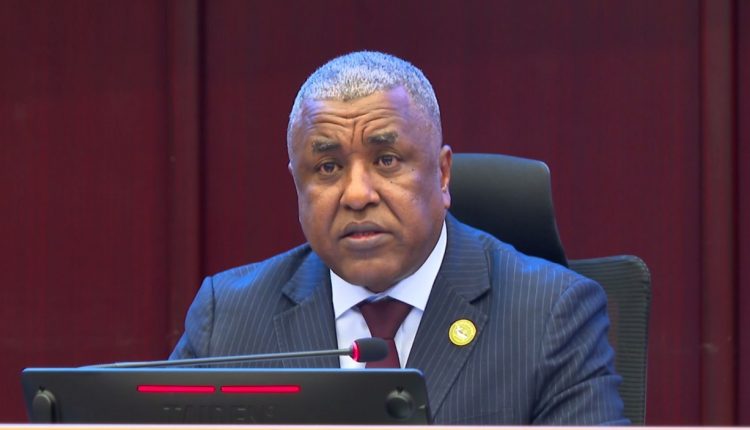Ethiopia Reaffirms Commitment to Food Systems Transformation
Addis Ababa, July 28, 2025 (FMC) — Ethiopia’s Minister of Agriculture, Girma Amente, has reaffirmed the country’s unwavering commitment to building a resilient and sustainable food system, emphasizing that transformation is not just necessary but achievable. He delivered the remarks during a high-level press conference held on the sidelines of the Second United Nations Food Systems Stocktaking Moment (UNFSS+4), currently underway in Addis Ababa.
Minister Girma was joined by UN Deputy Secretary-General Amina J. Mohammed and Italian Minister of Agriculture, Food Sovereignty, and Forestry Francesco Lollobrigida in addressing global and regional media following a pivotal high-level plenary session earlier in the day.
“It is an immense honour for Ethiopia to co-host this Summit alongside Italy,” Girma stated. “The presence of global leaders, UN agencies, youth, and private sector actors is a testament to our collective determination to tackle one of the most pressing challenges of our time.”
Held four years after the landmark 2021 UN Food Systems Summit, the UNFSS+4 comes at a moment of heightened urgency. The world, Girma noted, is grappling with unprecedented shocks—including the climate crisis, economic volatility, and conflict—which have exposed deep vulnerabilities in global food systems.
“This Summit is not just a moment for reflection, but a call to action to redouble our efforts,” he said. “It is clear that food systems lie at the heart of achieving the Sustainable Development Goals.”
Over the past two days, Ethiopia has hosted a series of impactful events, including field visits by more than 400 delegates, a youth forum, and side events such as the “Coffee Dialogue,” which facilitated partnerships across sectors.
Girma summarized key takeaways from the Summit thus far:
- Renewed Political Will: Delegates have reaffirmed their support for the UN Secretary-General’s Call to Action, highlighting the need to scale up ambition and cooperation to respond to the interconnected crises of climate, health, and food insecurity.
- Emphasis on Partnerships: Strong consensus emerged on the importance of inclusive, multi-stakeholder partnerships. The Summit spotlighted the critical roles of smallholder farmers, women, youth, and the private sector.
- Financing for Transformation: A central theme was the urgent need to unlock and reorient public and private financing toward food system transformation. Girma emphasized that this is not a matter of charity but one of “strategic investment in our shared future.”
UN Deputy Secretary-General Amina J. Mohammed echoed these sentiments, underscoring the need for accountable, inclusive transformation that brings tangible benefits to those most affected by food insecurity and climate disruption.
With one day remaining in the three-day Summit, delegates are turning their attention to the third core objective: Unlocking Finance and Increasing Investments. Discussions on July 29 are expected to deliver concrete proposals and outcomes to close the investment gap necessary to realize food systems transformation globally.
The Summit, co-hosted by Ethiopia, Italy, and the UN, marks the first time this global food systems platform is being held in Africa. It has drawn participation from over 125 UN Member States, with high-level delegations from at least 15 countries, and more than 4,500 registered participants.
Expected outcomes include a UN Secretary-General’s Declaration summarizing progress, outlining challenges, and setting out an accelerated roadmap for achieving the 2030 Agenda for Sustainable Development.
“We are not winning the game yet, but we have a clear path forward,” Minister Girma concluded. “Transformation is possible.”

